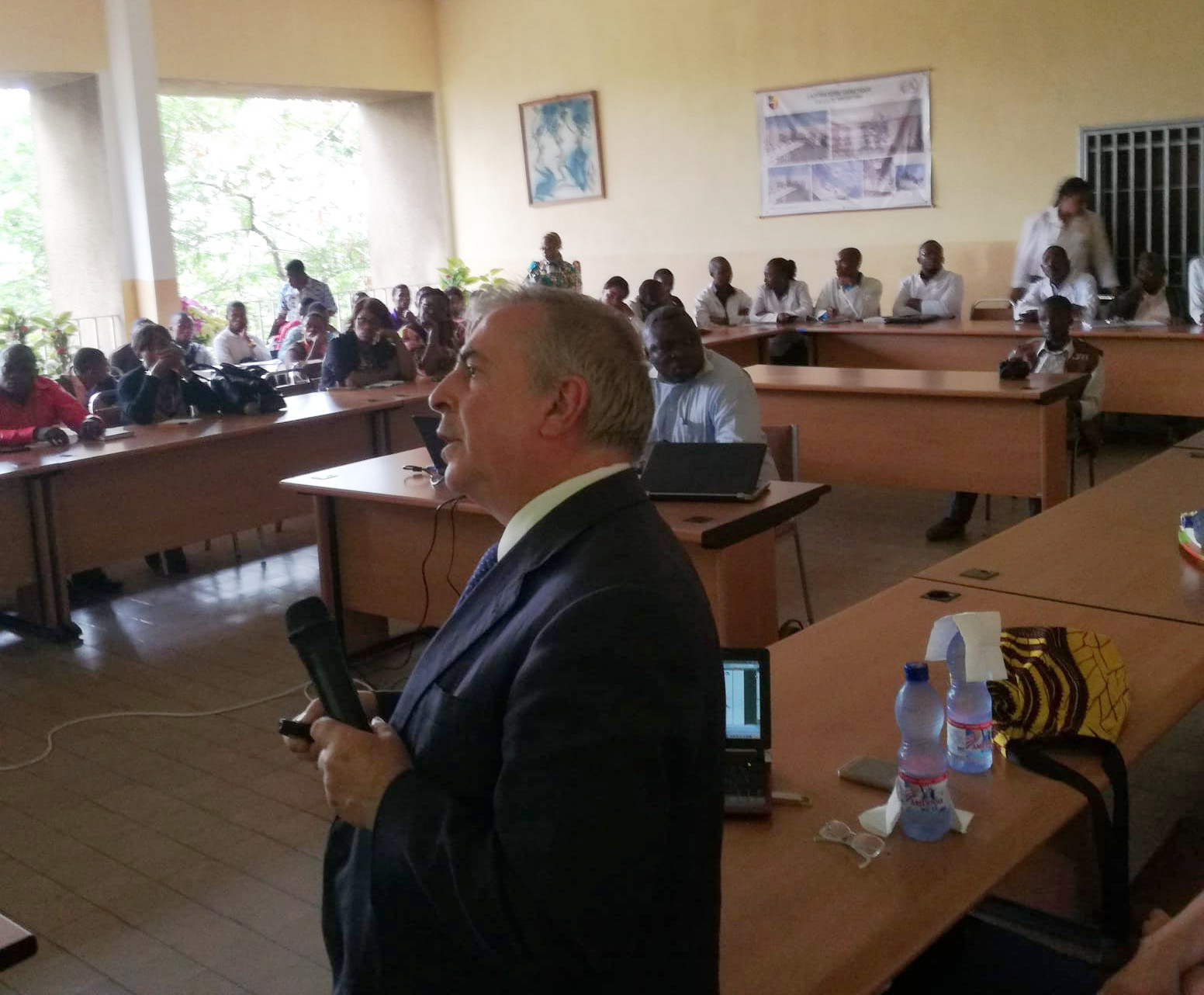The challenges of HIV therapy and the HIV/TB co-infection in Africa
A training course for health personnel took place in Kinshasa last week, organized by the DREAM Program of the Community of Sant’Egidio, called “The challenges behind HIV therapy and the HIV/TB co-infection in Africa”. Amongst the topics discussed were the shift to the third line of antiretrovirals and the use of the resistance test. The course was attended by 40 doctors, nurses and paramedic personnel from the DREAM center in Kinshasa and other local health centers and hospitals which collaborate with the DREAM Program in various ways, as well as representatives of the personnel of the DREAM center in Mbandaka (Équateur Province) and the Bandundu area. The course was held from the start by Professor Pasquale Narciso, an experienced infectious disease specialist in Europe, and a health consultant from the DREAM Program. The combined experience from both the African and European fronts laid the foundations for high-level training and impact at a local level. The attendees actively participated by presenting complex cases which they had to tackle over the course of their careers and welcomed the effort and effectiveness of sharing experience and know-how. A collective wish to participate in similar high-level courses was shared by the attendees, but most of all everyone felt more united and powerful in tackling the challenges posed by the HIV disease and tuberculosis together, which still take many lives in Kinshasa and the DRC.
In occasion of the presence of Prof. Narciso, a conference took place at the Medical School of the Kinshasa Unikin State University titled “The HIV virus and its resistances to antiretroviral drugs”. The conference was aimed at about 50 final year students, doctoral students and interns specializing in infectious diseases. Following the interest generated by the conference, the Dean of the Faculty, who was also the moderator during the event, asked DREAM to draw up an exchange agreement with the University to host the young doctors in training. This would give them the chance to put to practice on the field the theory acquired during their studies, all in a context of excellence.
